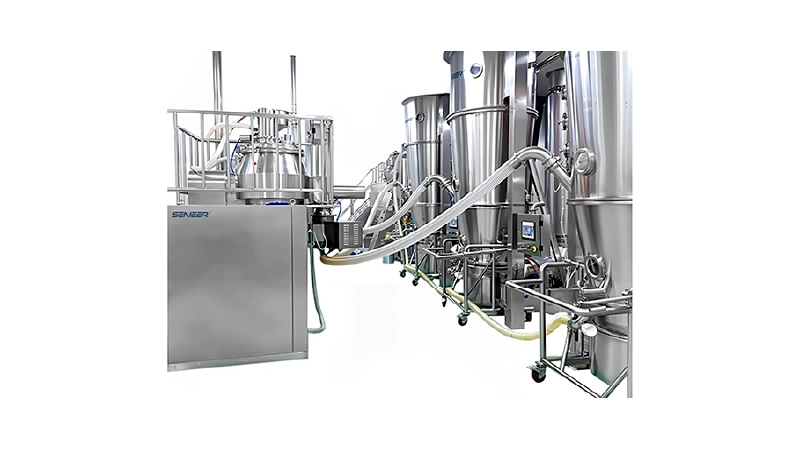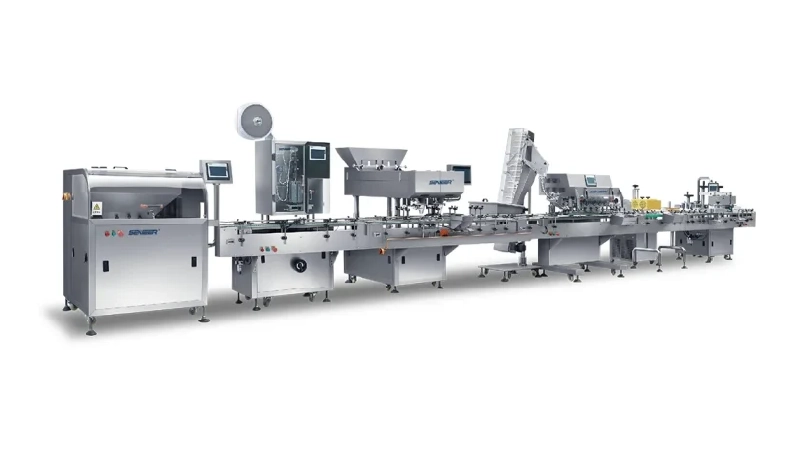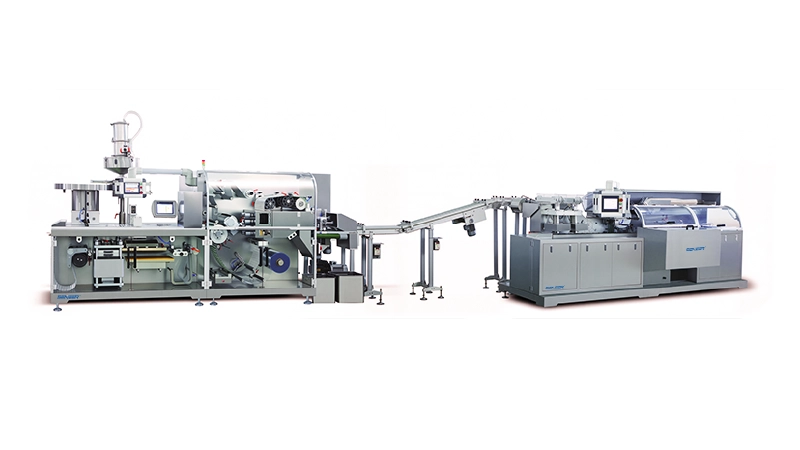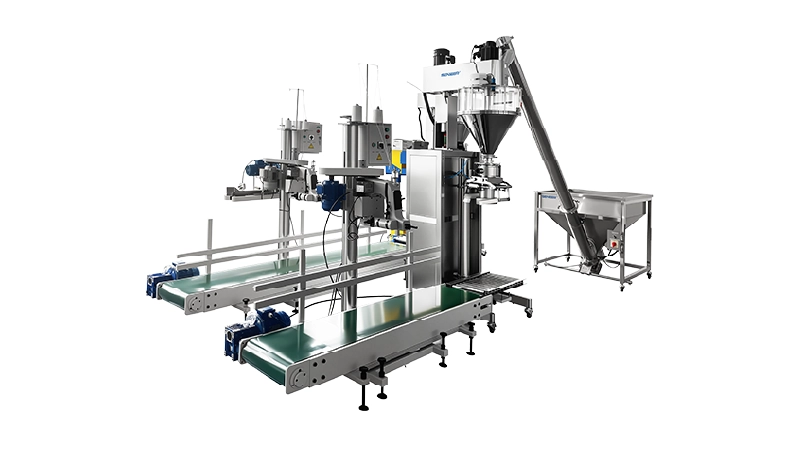Film coating technology is to use a certain process to coat a coating material on the surface of the drug, which can play various functions such as beautification, protection and control of the drug effect as expected. This technology can overcome the shortcomings of many medicines, such as bitter taste, rough surface of the tablet core, uneven color, deterioration and denaturation of the tablet core when exposed to light and heat, loose tablet core and easy powder loss, etc. However, our R&D personnel may still often encounter many problems during the actual coating process, such as the problem of chipping the tablet during coating. This is a relatively common problem and a relatively complicated problem. The first thing we may think of is to start from the coating process and change the coating control parameters, such as reducing the pan speed, improving the flow performance such as reducing the air volume or atomization pressure, etc.; secondly, if we think about it further, it is most likely to cause knocking The cause of the side problem still needs to be “traceable”. If there are defects in the tablet prescription, tablet shape design or pre-granulation process, it is difficult to make up for the problem simply by the coating process, but often everyone has a kind of Lazy and dependent, I feel that although the effect of granulation is not good, I want to cover up the problem of bad granules by adjusting the process parameters by tablet pressing. Coating technology to improve the fact that the tablet core is not good. But everyone is not all experts, and it is impossible to guarantee that everyone can use their rich experience to cover up these problems layer by layer, so we still have to work hard to optimize and improve each step of the process in order to ensure that the final coated tablet is one-sided and complete. Smooth and really works as expected to control the potency of the drug.
1 The Possible Causes Of Tablet Edge Knocking are:
1) Influence Of The Properties Of Raw Materials And Auxiliary Materials
The edge knocking of the tablet during coating may be due to the relatively high friability of the plain tablet, and the properties of the raw materials have a great impact on the friability of the plain tablet, such as the crystal form of the raw material. Generally speaking, the crystal symmetry of the cubic crystal system is good. It is easy to form when compressed, but needle-like or scale-like crystals are easy to form a layered arrangement, and there is a risk of splitting after being compressed into tablets. At this time, it can be considered to further pulverize the raw materials, such as jet pulverization, mechanical pulverization, etc. The method can break the crystal to reduce the friability; on the other hand, the particle size will be further reduced by processing the raw material by means of crushing. The filming process will proceed more smoothly. In the third aspect, if the viscosity and compressibility of raw materials are poor, it will also have a certain impact on the brittleness of plain tablets. You can choose to replace some excipients with better compressibility and viscosity as fillers, and you can consider replacing adhesives. Better binder or increase its concentration, but one point that must not be overlooked is to consider not only the improvement of tablet friability, but also the problem of disintegration time limit.
For example, in an analysis of factors affecting the friability of compound theophylline tablets, the research shows that compared with the raw materials that have not been pulverized, the granulation pressure of the pulverized raw materials is higher than that of the crushed raw materials. The friability of the tablet is better than that of the un-crushed one. The reason is that the crystal form of the crushed raw material becomes smaller, the specific surface area and contact area increase, and it is easy to form during wet-mixing granulation, and the plasticity of the tablet during tablet compression is enhanced; Different excipients, using microcrystalline cellulose as an excipient to press the tablet has a better friability effect than the same weight of starch, because microcrystalline cellulose has stronger plasticity; use 5% hypromellose solution as the binder Better binding than 20% starch slurry for better friability results.
2) Influence Of Granulation Process
Common wet granulation methods include high-speed shear granulation and fluidized bed one-step granulation. High-speed shear granulation process: when raw and auxiliary materials are mixed and granulated in the mixing tank of the wet granulator, the time and parameters must be controlled to ensure that the material and the binder are fully contacted and mixed evenly. When the pressure is released, more fine powder is produced, the particle cohesion is not strong, and the air between the powders cannot escape in time and is pressed into the tablet. When the pressure is released, the air in the tablet expands and there is a risk of splitting, and It is easy to cause unqualified friability of plain tablets, and even if the pan speed is small in the subsequent coating process, it will cause tablet edge knocking; if the stirring speed of the stirring paddle is too slow, the obtained particles have a wide particle size distribution range , The size of the particles is different, which will also have an adverse effect on the friability.
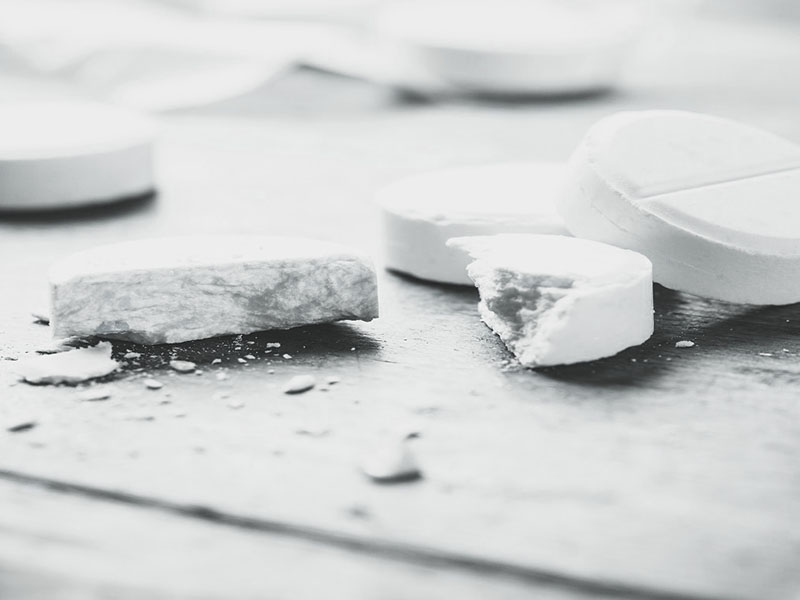
Fluidized bed one-step granulation process: If the air inlet temperature is set too high, the fan frequency is set too high, etc., the water in the sprayed adhesive will evaporate too quickly, and the adhesive force will be weakened. At the same time, the adhesive droplets cannot be mixed with the material Sufficient contact will make the particle size distribution wide and too much fine powder will also lead to the problem of unqualified friability. In addition, during the drying process after material granulation, the amount of moisture after drying also greatly affects the friability of the tablet. If the moisture is too small, the granules will be dry and the cohesive force of the granules will be poor; if the moisture is too large, it will be easy to stick. , so it is necessary to select the appropriate process parameters according to the specific situation to ensure that the obtained particles are better, the particle size distribution range is narrow, and the moisture is controlled within an appropriate range.
For example, in the wet granulation process, different wet mixing times are used to produce different hardness of granules. The longer the wet mixing time, the greater the hardness of the granules, and the lower the brittleness of the pressed tablets. Therefore, based on this result, without affecting the disintegration time limit of the tablet, the wet granulation wet mixing time can be appropriately extended, so as to improve the friability of the tablet and avoid edge knocking in the subsequent coating process.
3) Influence Of Tableting Process
In the tableting process, if the tableting pressure is low during tableting, the hardness of the tablet will be low, and the friability will be easily unqualified. The tableting pressure can be adjusted appropriately, but it does not mean that the tableting pressure should be increased blindly. In this way, the hardness of the tablet can be increased, and the problem of friability can be improved. If the hardness is too high, it will affect the delay of the disintegration time of the tablet, and personally think that the higher the hardness, the lower the friability. It is related to the composition of the prescription and the nature of the raw materials. On the other hand, it is necessary to regularly check whether the punch and die are worn, and whether the tablet has burrs. The worn punch will have an adverse effect on the edge of the non-wear-resistant tablet core, and it is easy to cause edge knocking; the pressing speed of the tablet is also possible. For the problem of high tablet friability, it is still necessary to analyze specific problems according to the actual situation of the tableting site.
4) Influence Of Coating Process
In the coating process, if the process parameters are not well controlled or the coating material is not selected properly, it will also cause the edge of the tablet to occur. First of all, let’s briefly understand the principle of coating: under certain conditions such as temperature and pressure, the coating material is usually formed into a film by spraying with a dispersion system (water or organic solvent). After the droplets are evenly sprayed on the surface of the drug, these small droplets spread rapidly on the surface under the action of surface tension and friction, and the heat of the hot air will take away the dispersion solvent and form a film quickly. If you understand the principle of coating, you can analyze its influencing factors very well. Among them, the inlet air temperature, air volume, exhaust air volume, spray pressure, spray speed, spray distance, coating pan speed, etc. will all affect the coating quality.
a) Rotational Speed Of Coating Pan
The basis for selecting the rotational speed of the coating pan is to select the lowest rotational speed based on the good fluidity of the tablet bed. There are many factors that affect the selection of rotational speed, including the size and shape of the tablet core, the degree of friability and smoothness of the tablet core, and the size of the filling volume. Baffle, and the temperature of stainless steel parts such as baffle is low, which leads to slow drying. Spraying liquid on it will easily cause adhesion, and too little loading will cause uneven coating of the tablet bed. Increasing the rotation speed of the pot will improve However, if the speed is increased, another problem may arise: if the chip core is less brittle, the excessively fast speed will aggravate the wear of the mechanical force on the chip core, resulting in edge knocking and debris. For cores with poor friability, the most fundamental way to avoid chipping is to reduce the abrasion effect of mechanical force on the core. The specific measures can be to reduce the rotation speed of the pot, etc.
b) Spray Rate
The low spray speed will also exacerbate the risk of chipping caused by the plain film to a certain extent. If the spray speed is too low and the coating material forms a film slowly, the mechanical force will increase the abrasion of the tablet. The best solution to this problem is to reduce the rotation speed in the first third of the entire coating process. Use a large spray volume to quickly coat the tablet with a protective film, then slowly slow down the spray rate to normal coating parameters to ensure that the desired coating uniformity can be obtained.
c) Sheet Shape Effect
During the coating process, the shape and size of the tablet core can affect the fluidity of the tablet bed. If the tablet core is too thin or the convex arc is too small, it will lead to poor fluidity of the tablet bed. For example, those long and narrow tablet cores with flat or sharp edges will not roll well in the coating pan, which will aggravate the problem of tablet separation. The mechanical collision between the sheet and the pot body will easily cause the phenomenon of sticking or edge knocking, while the round sheet can roll more evenly and suffer less wear, which can avoid this problem to a certain extent. On the other hand, if the core is too large, not only will the fluidity be poor, but also the collision force will be greater due to its large potential energy, which requires a relatively high hardness and strength of the core, otherwise it will cause serious fragments, fragments, and edge knocking. And so on. In response to this problem, in the later stage, it can be considered to change the die to change the shape of the sheet, appropriately increase the radian of the chip core, and reduce the contact area between the sheets.






